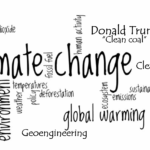In Canada’s national newspaper known for its business reporting acumen, The Globe and Mail, an article in The Report on Business states, “Climate change will eventually reduce the value of the global economy by almost one-third.” The article draws its conclusion from a Harvard and Northwestern Universities’ study entitled “The Macroeconomic Impact of Climate Change Global vs. Local Temperature.” The study concludes that every 1 Celsius (1.8 Fahrenheit) degree increase in atmospheric temperatures will lead to a 12% global GDP decline. It notes that the consequences of not addressing carbon emissions in the present will be “multiple orders of magnitude above previous estimates” as the remainder of the century unfolds. It further observes that a unilateral decarbonization policy will be a cost-effective means of reducing carbon dioxide (CO2) in the atmosphere and argues that the social cost of carbon is US $1,056 per ton if we don’t address unilateral decarbonization quickly. For those who balk at a carbon tax or levy in the United States and other countries including Canada, the current federal carbon price of CDN $80 (US $58.77) seems laughably insignificant in light of this newly published research.
The paper’s authors are both economists, one at Harvard, and the other at Northwestern. Adrien Bilal is the Harvard contributor. He is on the faculty of Harvard and is a macroeconomist with interests in labour and spatial economics. He received his PhD from Princeton University and was a Postdoctoral Fellow at the Becker-Friedman Institute at the University of Chicago. Diego R. Känzig received his PhD from the London Business School. He is a teaching member of the faculty at Northwestern, whose research is in macroeconomics with a focus on climate change and inequality. He studies the role of energy and climate change, economic fluctuations and the transmission of significant long-run macroeconomic shocks and policies.
They describe the macroeconomic damages from climate change in this century and estimate that they will be six times greater than what has been previously published. The reason why is that “global temperature shocks correlate much more strongly with extreme climatic events than the country-level temperature shocks commonly used” in current climate study literature and research.
If business-as-usual continues, the conclusion is a decline in the present value of economies on average across the world amounting to 31% which differs dramatically from IPCC reports that state a 1 Celsius temperature rise reduces global GDP by 1 to 3%.
We can compare the prediction to our current reality with global mean temperatures having risen more than 1 degree since the Industrial Revolution with the rise accelerating. Is the world’s economic output declining as the IPCC reports suggest? According to the International Monetary Fund, the world economy is still recovering from the economic downturn of the global COVID-19 pandemic and the trillions of dollars poured into national economies to keep us out of a worldwide depression. The shock of these two events has skewed the numbers to make it harder to assess if global GDP would be declining by the percentages forecasted. Instead, we see forecasts of global growth over the next 5 years at 3.1%.
So is climate change the threat to our present and future as is being foretold? Even if the cost of climate change is a 1 to 3% GDP decline, do we need to implement drastic policy changes? After all, the stock market continues to achieve new record indices, business is booming, unemployment numbers are near historic lows, and inflation is getting back to normal levels in the post-pandemic era.
The authors ask if things are this good “Are the costs of climate change truly so small?” Those opposed to carbon pricing or carbon taxes can point to current economic trends.
The authors of the study, however, refute the consensus opinion of IPCC reports that estimate 1 to 3% economic output declines. Instead, they look at time-series global projections, the increased number of extreme climate events, reinsurance financial industry payouts, global and country-level modelling, and three climate-economy datasets covering 173 countries with one spanning the last 120 years. With these, they construct global and local-country temperature shocks and incorporate geoscience to calculate projections. They also account for climate variability such as solar cycle and El Niño-La Niña fluctuations.
The authors take into consideration other economic shocks that are not attributable to climate change such as wars, recessions, changes in commodity prices such as fossil fuels, and other macroeconomic financial variables to isolate global warming impacts. The data samples cover three time frames: 1900 to 2019, 1960 to 2019, and 1985 to 2019. The results in estimated GDP declines remain remarkably consistent over all three.
They ask why are they seeing “dramatically larger effects” in their calculations than those done by previous climate and economic impact experts. The estimate being six times larger than previous work in the field is attributed to a focus on “global mean temperature” as opposed to “country-level local temperatures.” They note that global temperature has a more pronounced impact on economic activity than local temperatures.
As a test using the same data sampling and local temperatures, the authors conclude the 1 to 3% decline that matches previous studies. But as they point out, since global climate knows no boundaries, values produced by these previous estimates do not reflect the true impact of carbon pollution on the macroeconomics of the planet.
The paper states that there is “a novel relationship that rationalizes this difference. Global temperature shocks predict a large and persistent rise in extreme climatic events that cause economic damage: extreme temperature, extreme wind, and extreme precipitation…By contrast, local temperature shocks predict a much weaker rise in extreme temperature, and barely any rise in extreme wind speed and precipitation.”
What the geoscience data shows related to climate change is that global outcomes are affected by ocean temperatures and atmospheric humidity rather than local temperature idiosyncracies. Warmer areas of the planet are more severely affected than colder areas. Whether you live in a high-income or low-income country, climate change experiences produce similar effects. That’s why taking a global perspective seems appropriate with the disturbing results a wake-up call for climate policy makers. The paper concludes that a rise of 3 Celsius (5.4 Fahrenheit) by 2100, 2 Celsius (3.6 Fahrenheit) higher than today will produce damage equal to “fighting a war domestically and permanently.”
The authors state this has “salient consequences for decarbonization policy” and note that current US policy reflected in The Inflation Reduction Act, other acts of Congress and in regulatory changes, does not reflect the true cost of CO2 pollution today which they calculate to be $211 rising to $1,056 per ton should there be decades of delay in implementing unilateral all-in decarbonization. I might add that the same can be said for Canada’s present $80 carbon price as being an inaccurate reflection of the true cost of CO2 pollution.
The problem in both countries and elsewhere is that governments are reluctant to reflect the true cost of fighting climate change to their citizens. What this means for generations that follow us is well concluded in the Globe and Mail article by this observation, “The next time someone suggests that we should fight climate change only if the price isn’t too high, you could ask them what price they’d be willing to pay not to live in an eternal Ukraine or Gaza.”









